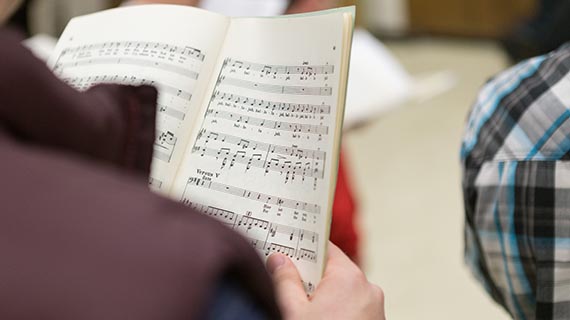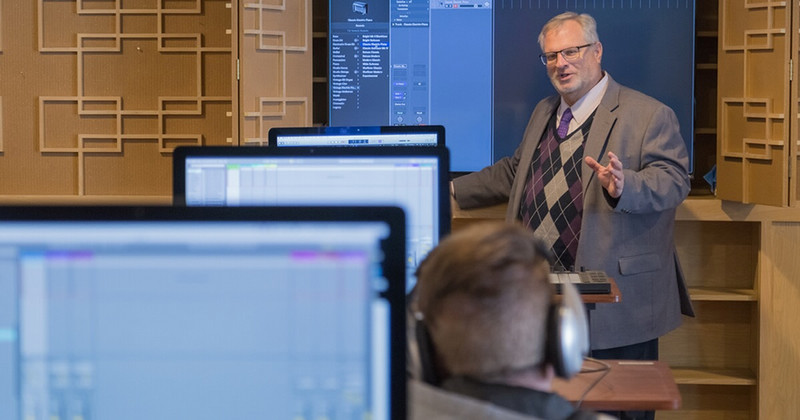What Can I Do With a Master of Music Education?
Posted: August 05, 2020 | Author: Southern Utah University | Read Time: 4 minutes

With a bachelor’s degree in music education being required to teach in elementary and secondary schools, a master’s degree in music education can feel redundant or like a formality that comes with a pay raise. This could not be further from the truth.
Many doors open after earning a master’s degree in music education, from branching out into other fields in music to transitioning into teaching at a college. A great way to further a career, below are the most common career moves that music teachers make after earning their master’s degree in music education.
Why is a Master of Music Education Important?
Like many other subject areas, one of the main goals of music educators is to establish a life-long love of learning in students. A continuation of your own education is an excellent example to the students you teach. Additionally, a master’s degree in music education arms educators with essential tools needed to grow beyond the minimum requirements of being a high school or secondary school music teacher. Earning a master’s degree in music education builds educators that are more fit to assume leadership positions and speak with authority based on the research conducted and study in the program. Educators with a Master of Music Education are all-around more effective teachers.
3 Common Master of Music Education Career Moves
Teaching Music at the Post-secondary Level
Although most post-secondary institutions require a doctorate degree to teach full time, some smaller universities and community colleges will hire part-time or adjunct faculty to teach a number of courses. A master’s degree is a great way to get your foot in the door at a post-secondary institution. If the plan is to also earn a doctorate degree, having teaching experience at the collegiate level will help when the time comes to find a full-time professorial position at a University. Building these relationships with higher learning institutions and educators can also help connect students with facilities, which provides them with greater opportunity for entrance into college music programs after high school.
Music Directing and Composing
A great deal of what music teachers do involves directing student ensembles and even altering existing arrangements to meet the needs of a particular ensemble. A piece that is perfect for a brass section that features a prominent bassoon part does no good if you teach an ensemble without a bassoon player. Or a part may be too difficult for the skill level of the players on a particular instrument. An effective music teacher can alter the arrangement so that the part gets covered by another instrument or that part of the piece is removed to ensure a smooth performance while maintaining high standards of quality to make the ensemble look and sound their best. These skills transfer very well to the world of professional music direction, composition, and arranging. There are a great number of teachers who have successful secondary careers composing for film, arranging for performances, and directing professional orchestras. A master’s degree in music education not only arms graduates with the skills needed to do these jobs, it opens the door for career opportunities that often require a master’s degree.
Publishing
The combination of skills in music and education learned in earning a master’s degree in music education lend themselves well to writing about either topic. Many experienced educators have found additional success outside of their primary careers by writing about their experiences. It’s no secret that graduate work is often writing-intensive and this prepares those who hold master’s degrees for the opportunity to write books and resource materials for other educators. This can be a lucrative way to expand your career in music education.
A Master of Music Education is not only a natural next step in the career of a music educator but an essential part of being a great teacher. Graduates with a Masters of Music Education can use research to further their goals, manage resources effectively, and bring a unique take on musical pedagogy to the schools in which they teach. Masters of Education are more competitive, more competent, and more complete educators.
Produced by SUU Graduate Studies
SUU's Graduate School draws from a prestigious heritage and allows students to pursue a quality education. The master's degree programs offer students the chance to further their professional and educational careers on campus or online.
This article was published more than 3 years ago and might contain outdated information or broken links. As a result, its accuracy cannot be guaranteed.
Tags: Music Graduate Programs College of Performing and Visual Arts




